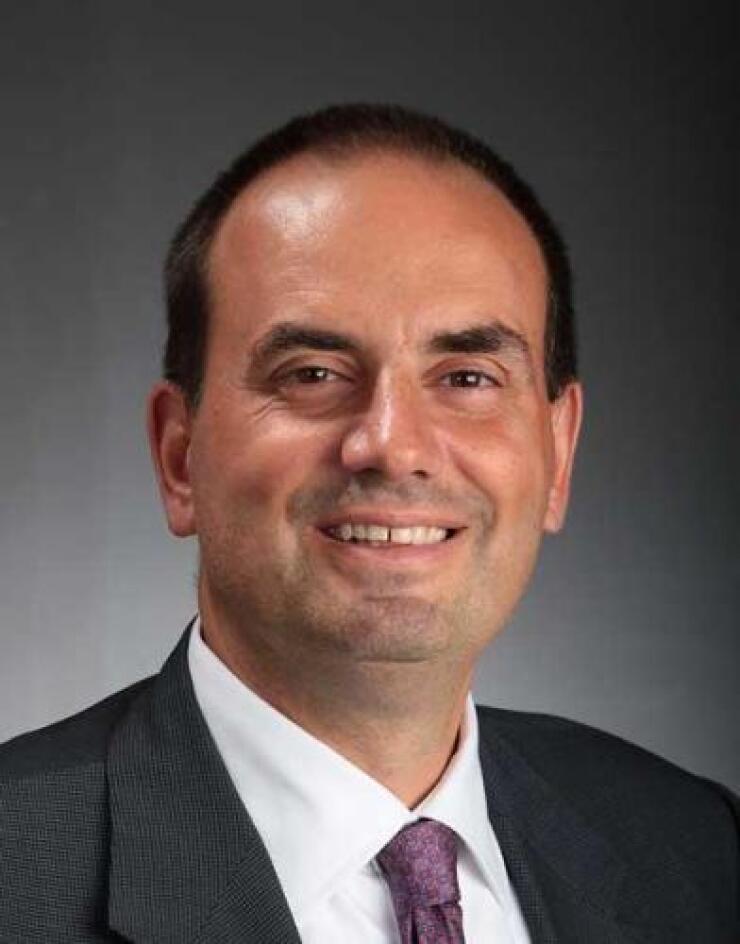The Illinois Finance Authority is promoting its role as a facilitator for C-PACE financing statewide as it scales up a program that has picked up steam as borrowers pay more heed to environmental, social, and governance goals.
C-PACE, for commercial property assessed clean energy, allows a property owner to agree to additional real estate tax assessments to fund environmentally beneficial purposes. The assessments repay bonds amortized over the useful life of the project, which could range from five to 30 years.
Cook County, which covers Chicago,

“Our C-PACE financing requests currently range from $100,000 to $14 million,” said Erin Matthew, spokeswoman for the county’s Bureau of Economic Development. “Cook County plans to increase our promotion of the program and anticipates continued growing interest as more people become aware of it and sustainability becomes more top of mind for property owners.”
After a decade of gestation in the General Assembly and state legislation in 2017 and
The Illinois Finance Authority, the state’s largest conduit issuer, closed its first PACE bond financing — $21.3 million for a new Chicago hotel — in collaboration with Chicago in 2019 and now has racked up seven closed taxable C-PACE revenue bond deals.
The IFA board last week signed off on new authorizations for two capital providers: a $100 million authorization for Forbright Bank and $250 million for BF 4 Greenworks Lending LLC.
To promote access to C-PACE at the local government level, the IFA implemented a
“The authority has built upon its C-PACE strategic partnership with the city of Chicago and is now scaling C-PACE financing to the nearly 1,300 municipalities across our great state,” said the authority’s executive director, Chris Meister.
“By partnering with Illinois municipalities with direct jurisdiction over local land use and building codes, the authority’s standardized municipal choice C-PACE financing model sets the foundation for widespread adoption by cities, villages and incorporated towns of all sizes and resources…moving the needle on climate change while saving borrowers money through ESG finance,” Meister said.
The authority promotes its model for capital providers as an independent marketplace for opted-in municipalities in Illinois. Capital providers or their servicers bill and collect payments themselves.
The authority says its standardized financing documents reduce due diligence costs in the secondary market to smooth the path for long-term bonds or notes to be securitized, according to the authority.
The authority charges a flat fee of 50 basis points of the assessment amount for its services. Market participants can select any counsel or trustee of their choosing at their own negotiated terms and conditions to incentivize competition and reduce overall costs.
At the local level, the authority supplies a standardized local ordinance and related form of assessment contract that has been vetted by counsel and a standardized form of master indenture and other key documents that allows any capital provider to fund an unlimited number of energy projects under a single, statewide trust.
In addition to Freeport and Chicago, Beardstown, Fairview Heights, Highland Park, Highwood, Markham, Murphysboro, Rosemont, and Quincy have passed ordinances.
The latest deal facilitated through the IFA in conjunction with the Chicago suburb of Skokie closed last week. CastleGreen Finance, an affiliate of X-Caliber Capital, served as the provider for the $12.3 million transaction that provides financing toward the construction of a 143-room Homewood Suites Hotel.
The C-PACE financing will pay for energy efficiency through the installation of LED lighting, efficient heating, ventilation and air conditioning, or HVAC, and other eligible improvements that will produce substantial energy savings and reduction in greenhouse gas emissions.
Skokie Mayor George VanDusen, who issued a statement calling the hotel a " transformational project" for downtown Skokie, said it would help “advance our goals for environmental sustainability.”
In addition to the Chicago hotel project and the latest Skokie financing, IFA closed in 2019 on a $20 million financing for Hotel Mannheim Chicago LLC for qualified projects at a hotel near O’Hare International Airport in Rosemont, according to IFA documents compiled by Brad Fletcher, the authority's vice president and treasurer.
A $4.5 million deal closed in 2020 for Swift Pork Company for eligible projects including the installation of a commercial solar photovoltaic system capable of collectively producing 2,592,000 watts of direct power at a pork processing plant in Beardstown.

IFA last year closed on a $4.6 million financing for Chicago Prep Master Tenant LLC for eligible costs related to renovations that transformed a vacant industrial building in Chicago into 64 commercial kitchens for lease to tenants.
Earlier this year, IFA closed on a $1.9 million financing for Bloom Waukegan LLC for energy efficiency projects for five, new 3-story multi-family buildings in Highland Park. Also this year, the authority closed on a $5.7 million deal for Gateway Rosemont LLC to finance eligible work on a dual-branded Holiday Inn-Staybridge Suites Hotel in Rosemont.
CastleGreen, SFA Partners, LLC, Counterpointe Sustainable Real Estate LLC, PACE Loan Group LLC, and PACE Loan Group have been capital providers or initial purchasers.
The 2019 legislative overhaul brought the PACE statute up to standard with other special assessment laws in the state after a $2 billion commercial PACE program failed to attract much interest. That prompted the IFA to look at other states’ successes as a model.
The changes incorporated public health and natural disaster protections into the PACE Act and promoted sustainability initiatives. It was also aimed at addressing market concerns over the act’s language that some believed required more clarity. The legislation classifies green upgrades and installations as a public benefit.
C-PACE is 100% debt & requires no equity. The financing is senior to the mortgage because the security comes from a property lien on the same level as a property tax lien.
C-PACE debt replaces the “mezzanine” debt that sometimes has interest rates in the high teens. In contrast, the IFA Skokie bond project had a fixed interest rate of 6.04% with no federal tax-exemption and no public subsidy.
The IFA began amplifying its C-PACE efforts as it looked to broaden its financing products for economic development and green projects after a piece of its business was cut in the 2017 federal tax reforms that eliminated advance refundings.
“C-PACE financing is also consistent with the authority’s enhanced focus on Environmental, Social, and Governance,” Meister said.
In Cook County, close and pending C-PACE projects are located across the county and cover a range of project types from industrial and retail sites and hotels to multi-family housing and healthcare facilities.
“We expect to close on all current projects in 2022, and for the number of projects in the pipeline to continue to grow in the next year,” Matthew said.
Cook County’s program functions independently from any other government C-PACE agencies and works with the Illinois Energy Conservation Authority as administrator. The county is capable of issuing all the bonds and notes under the Illinois PACE Act.
The county’s first financing provided a $7.4 million loan last November for a $28 million renovation of the historic Ramova Theater in Chicago’s Bridgeport neighborhood spearheaded by Chicago-based Our Revival LLC and Baum Revision.
C-PACE capital covered renovations that increased the thermal performance of the historic building envelope, upgrades to energy efficient HVAC systems, LED lighting, hot water systems and low flow fixtures. Twain Financial Partners was the capital provider.
“C-PACE financing was a critical component of the capital structure for the Ramova Theatre as it reduced the need for traditional debt and works efficiently with the historic tax credit equity and TIF funding associated with the project,” said Scott Goldman, principal at FarPoint Development.
The county’s second financing supported the makeover of a vacant Target retail store into an indoor vertical farm for Wilder Fields, a technology-enabled food company, in Calumet City. Wilder Fields used the $2.47 million loan to purchase growing towers for the company’s first phase of construction. Nuveen Green Capital was the capital provider.
C-PACE is not a federal program, and public funding is not necessary to run a C-PACE program. C-PACE must be authorized by state legislation, and requires further authorization from local governments.
Chicago’s C-PACE program is administered by Loop-Counterpointe PACE LLC, a joint venture between Loop Capital Markets LLC and Counterpointe Energy Solutions LLC.
Loop Capital Markets serves as the placement agent for bonds issued under the program and Counterpointe Energy Services LLC is the assessment contract/bond servicer.
The





